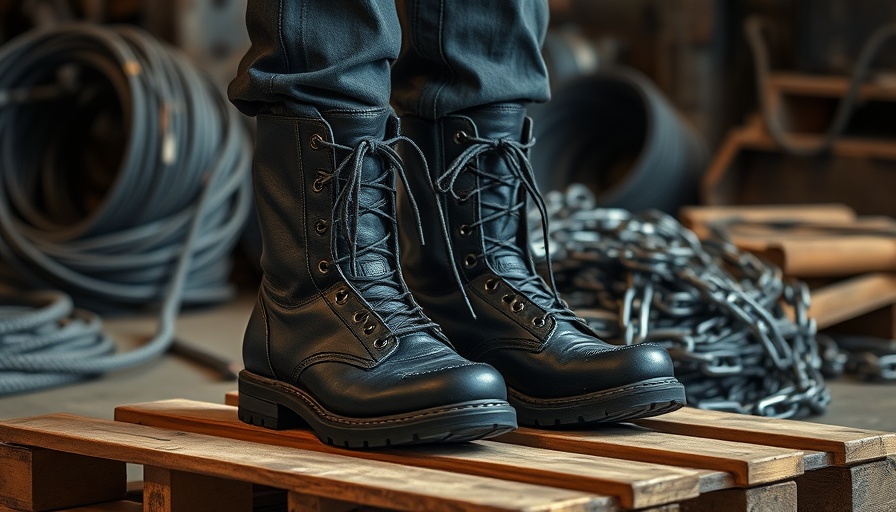
Understanding the Importance of Steel Toe Boots
For those who work in hazardous environments, steel toe boots are often seen as a crucial element of workplace safety. These boots can protect against severe injuries from heavy falling objects and are designed to withstand rigorous conditions. But with this functionality comes a question that often lurks in the minds of workers: Can steel toe boots rust?
Why Does Steel Rust? Exploring the Metal's Weakness
The simple answer is yes, steel can rust under the right conditions. Steel is primarily made of iron, a metal notorious for its susceptibility to corrosion when exposed to moisture and oxygen. This means that if your boots frequently face wet conditions without adequate protection, you may notice signs of rust over time. It's a common problem, especially for those used to rugged outdoor work.
Notifications on Steel Toe Boots: Water-Resistant vs. Non-Water Resistant
Not all steel toe boots are designed the same way; some offer water resistance, while others do not. If your boots are made from non-stainless steel and are not waterproof, they are at a risk of rusting. Understanding the materials used in your steel toe boots is fundamental to ensuring their longevity.
Alternative Safety Toe Options: Composite and Alloy Toes
If rust is a concern, you might want to consider alternatives like composite toe boots or alloy toe boots. Composite toes are made from lightweight, non-metal materials such as Kevlar or carbon fiber. These options offer good protection while being resistant to rust entirely. Furthermore, they are designed to keep you comfortable on the job without weighing you down.
Alloy toe boots provide another layer of protection, combining materials like aluminum and titanium. They meet safety standards just like steel toes but are often lighter and more comfortable for extended wear. Although they generally come at a higher price point, the investment could save you from the discomfort of heavy boots.
Choosing the Right Boot for Your Needs
A comparison between steel toe boots, composite toe boots, and alloy toe boots can help you make informed decisions based on your work environment. Depending on your needs and the specific conditions you face daily, each option has its pros and cons. For instance, if you often work around metal detectors, composite toes might be ideal; for those who prioritize lightweight footwear, alloy toes could be the best choice.
Final Thoughts on Boot Maintenance
While the rusting of steel toe boots is a genuine concern, the right choice of materials can significantly impact your footwear’s lifespan. It’s essential to keep your boots clean and to dry them properly after exposure to moisture. Considering alternatives like composite and alloy toe options leads to enhanced protection without the hassle of rust. Make an informed choice, and your feet will thank you!
 Add Row
Add Row  Add
Add 




Write A Comment